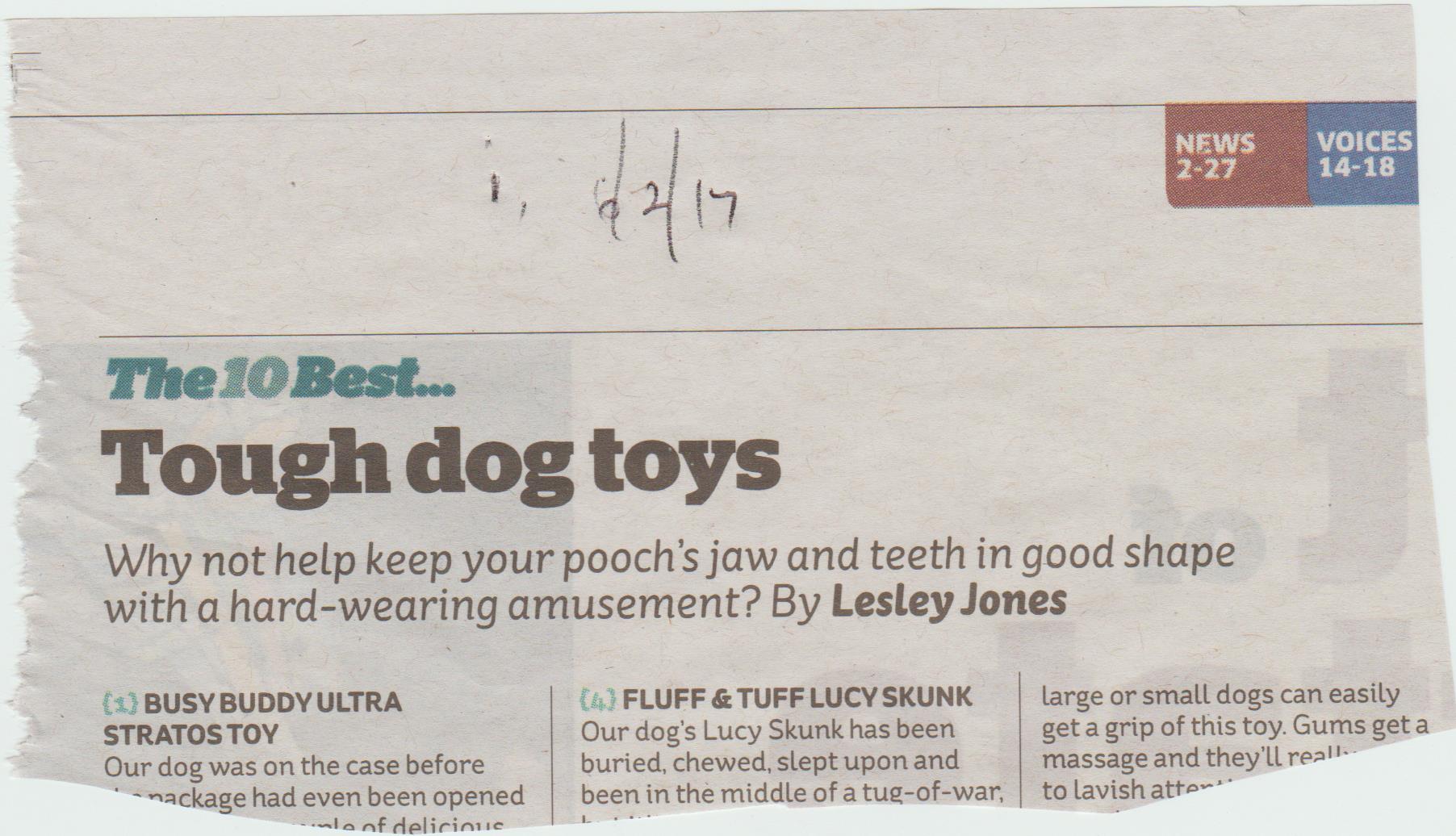
i newspaper, February 6, 2017
Pooch?! This goes with moggy and mutt, all commonplace in Titbits 1950. ‘Pet’ would do to avoid repeating ‘dog’.

i newspaper, February 6, 2017
Pooch?! This goes with moggy and mutt, all commonplace in Titbits 1950. ‘Pet’ would do to avoid repeating ‘dog’.
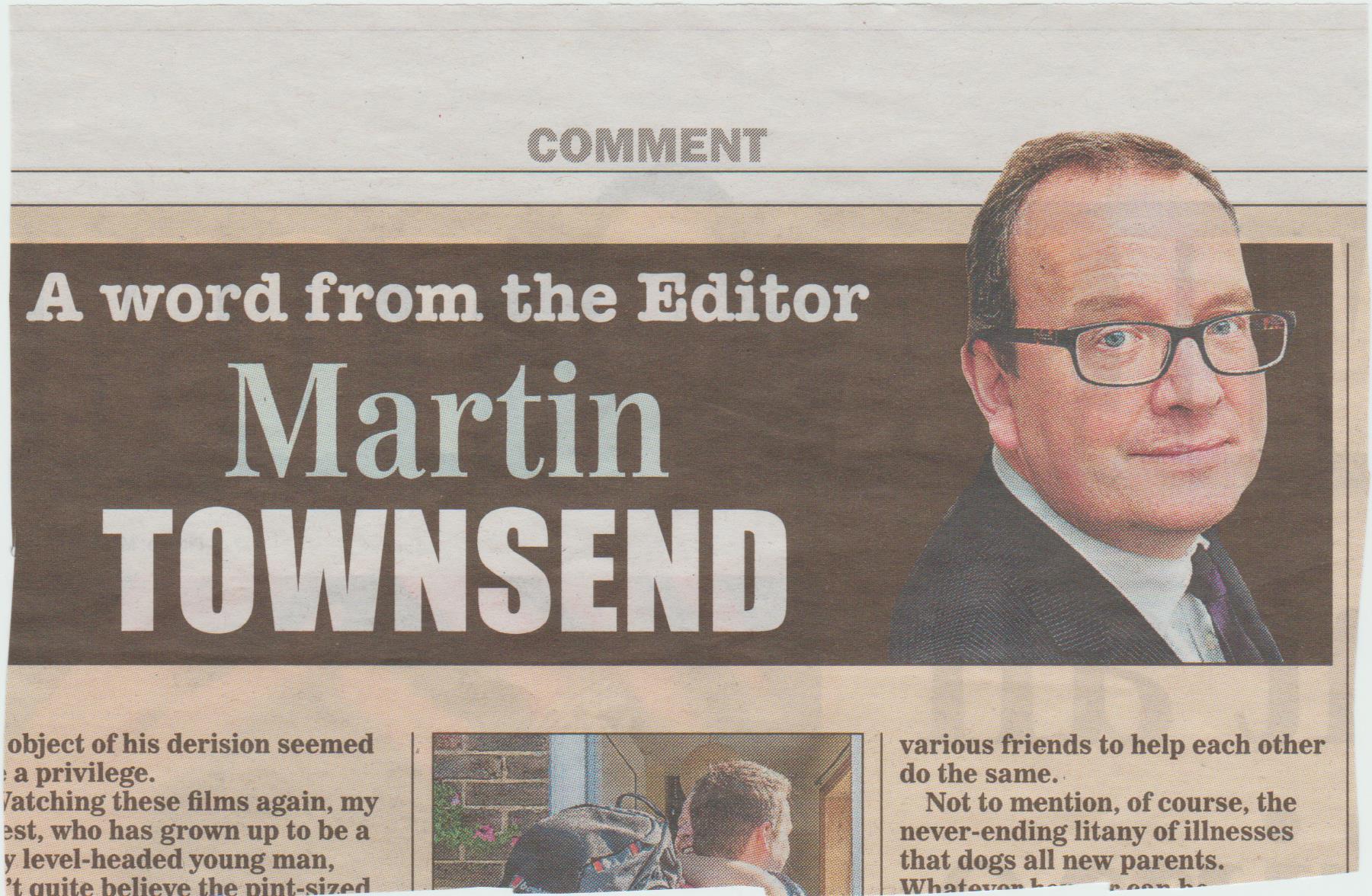
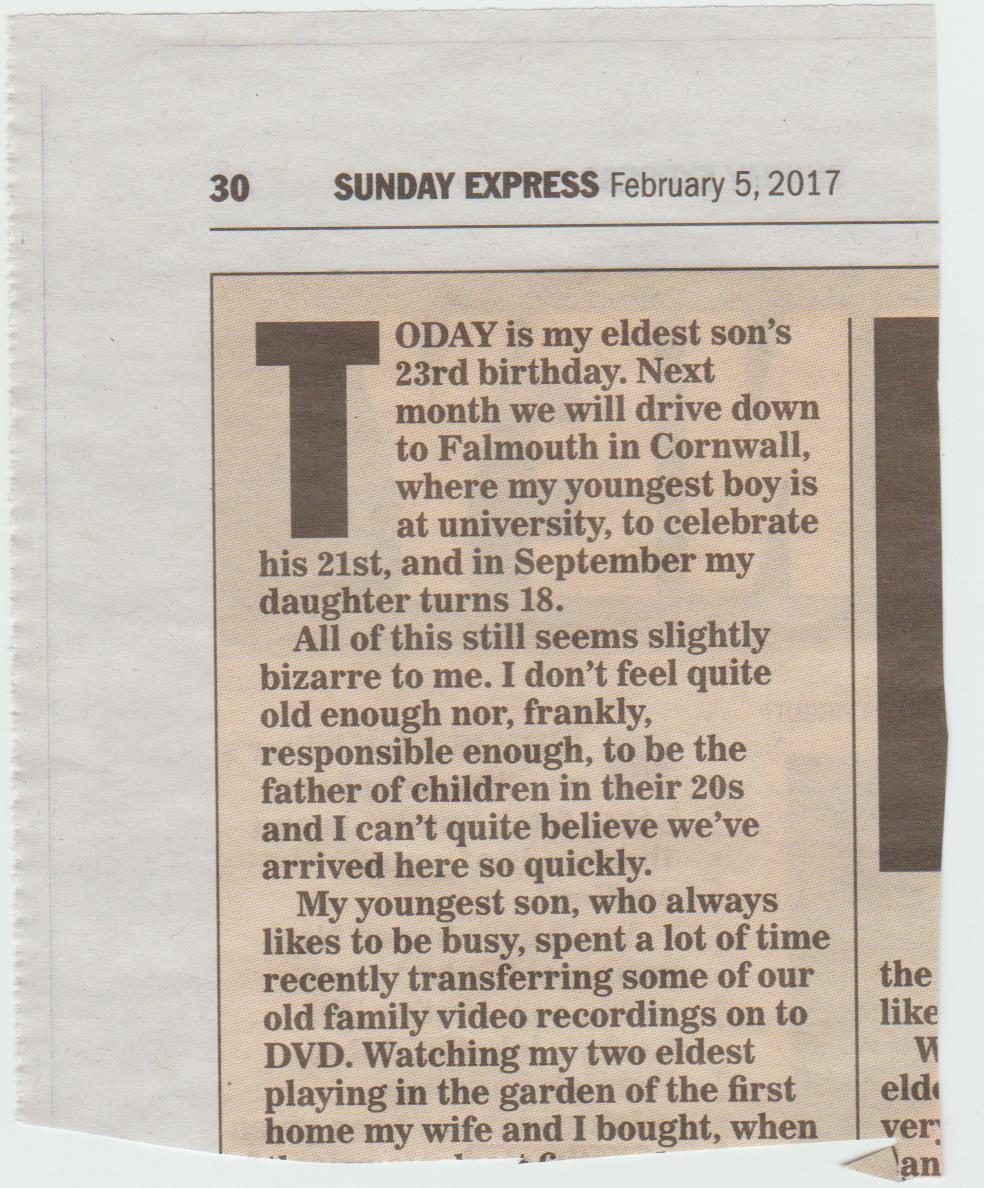
Sunday Express, February 5, 2017
Dear oh dear. An editor should know better. He has two sons, so they are the elder and younger boys, not eldest and youngest. He could have got away with ‘eldest child’ for the first boy but not ‘youngest child’ for the second boy, because there is a daughter aged 18 who is the youngest child. I don’t think you can say ‘my two eldest children’ either; that should be ‘my two elder children’. 0/10.
Incidentally you can say ‘eldest’ or ‘oldest’ for related people, but only ‘oldest’ for unrelated people or things, such as ‘the oldest boy in the class’ or ‘the oldest rocks yet discovered’.
PS It has been brought to my attention by my son that younger people find this rule archaic and are quite happy with ‘oldest’ of two. I still don’t see any harm in doing it ‘right’.
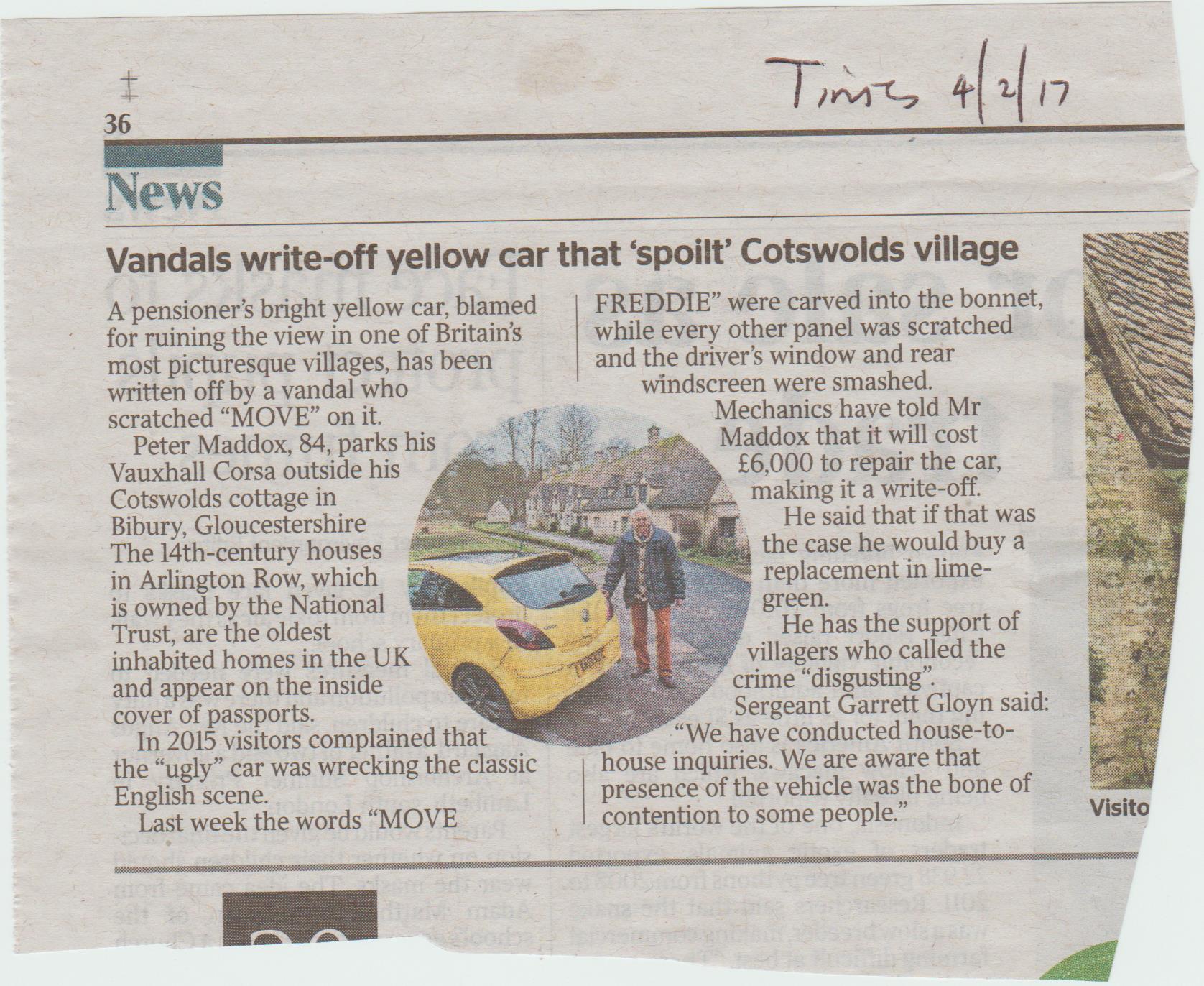
Times, February 4, 2017
Hyphens are a problem in this piece. You don’t need one if you are using ‘write off’ as a verb, but you do if you are using it as a noun. So the heading is wrong, but ‘written off’ is correct in the intro, and ‘write-off’ is correct in the second leg. ‘Lime green’ does not need a hyphen. You would not put one in ‘sunshine yellow’ or ‘royal blue’. Incidentally I would say a windscreen is at the front of a car, not at the back. I would use ‘back window’.

i newspaper, February 4, 2017
Please tell me I am not seeing this. The vegetables, of course, are leeks. It’s funny because broccoli is usually the one that gives trouble.
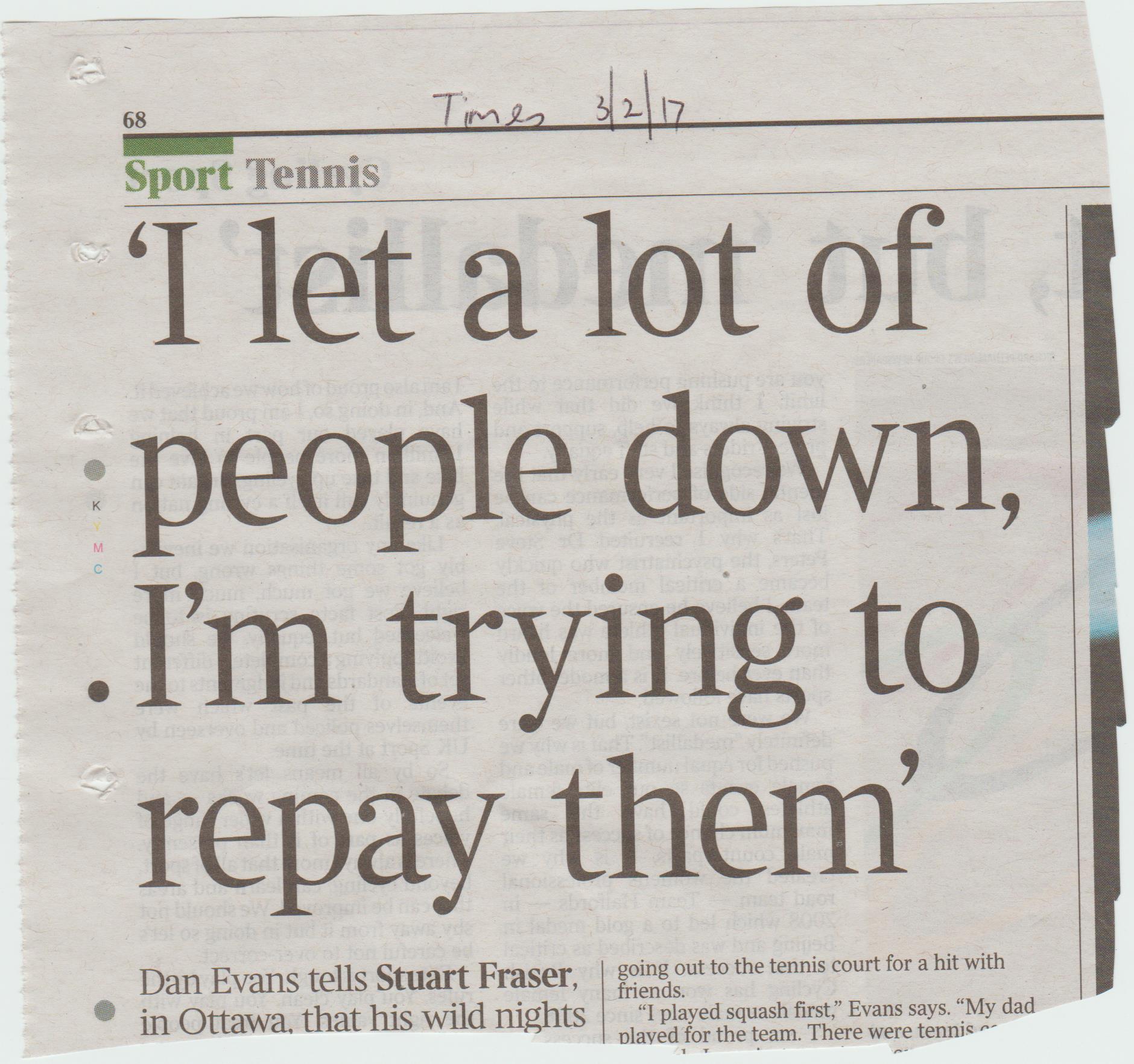
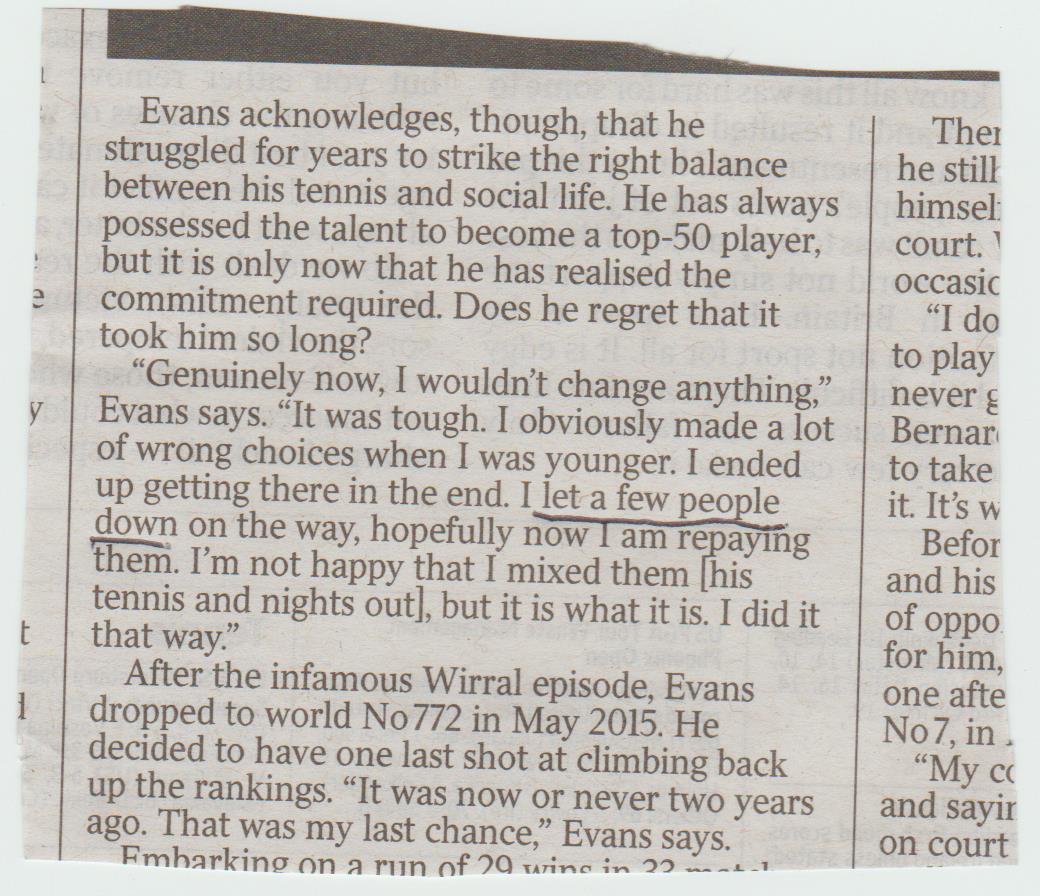
The Times, February 3, 2017
This is something you really can’t do. The heading says something quite different from the copy. I think Dan Evans has previously said that he ‘let a lot of people down’, but crucially not on this occasion. Apart from being bad practice, in the past headings which go beyond the copy in this way have cost papers a lot of money.
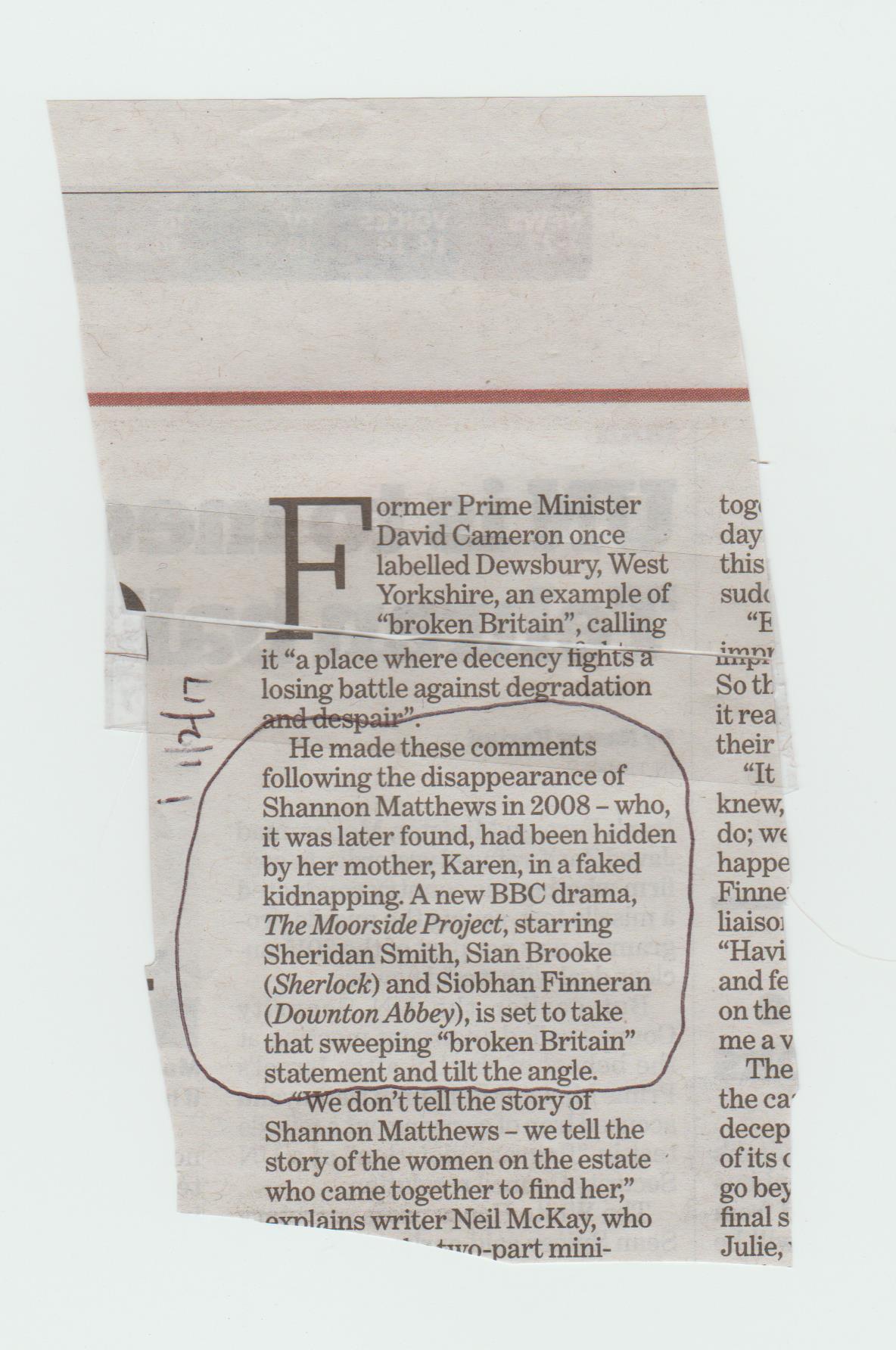
i newspaper, February 1, 2017
Four points handily packaged in one article. Above, the second sentence would be immensely improved by moving the words ‘in 2008’ so that it reads ‘the disappearance in 2008 of Shannon Matthews – who, it was later found . . .’ This places ‘who’ next to the person, rather than the year. A small change that makes a big difference. Incidentally (third paragraph) I would prefer not to use a quote by a new speaker without introducing him first. I don’t think it makes for easy reading to wonder who is speaking. Not everyone agrees though.
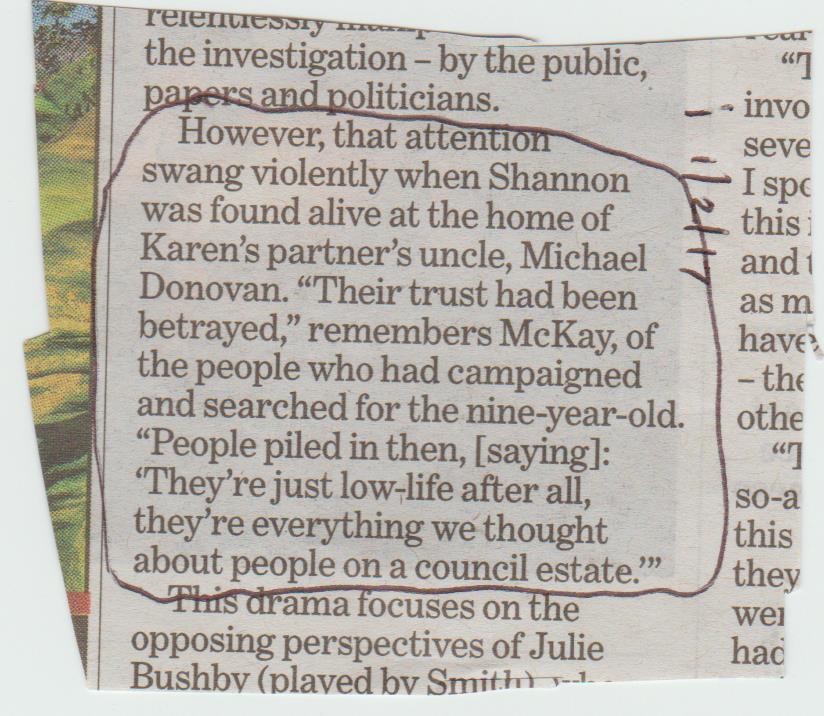
Here is a new word, ‘swang’. I can see how this may have happened, because the past tense of many similar words has an ‘a’, for example ‘swam’ and ‘sank’. In those cases the past participle (which is used with forms of ‘have’) is ‘swum’ and ‘sunk’. So you would have ‘the boat sank’ or ‘the boat had sunk’. Presumably the writer did not want to fall into this trap, but unfortunately ‘swing’ does not not follow the same pattern, and both the past tense and the participle are ‘swung’.
Further down is the word ‘saying’ in square brackets, to indicate that the speaker omitted the word but that is what he meant. I find this silly. Who on earth would complain about having the word ‘saying’ inserted into a quote? It makes the piece that bit less smooth to read.
At the end of that paragraph it would look better, as well as being correct, to close the single quotes, put the full stop, then close the double quotes, rather than have triple quotes.
BBC News Online, February 1, 2017
Why is there a hyphen in this heading? In this use, a hyphen connects two words to mean something else, such as ‘ball-boy’. This is wrong.
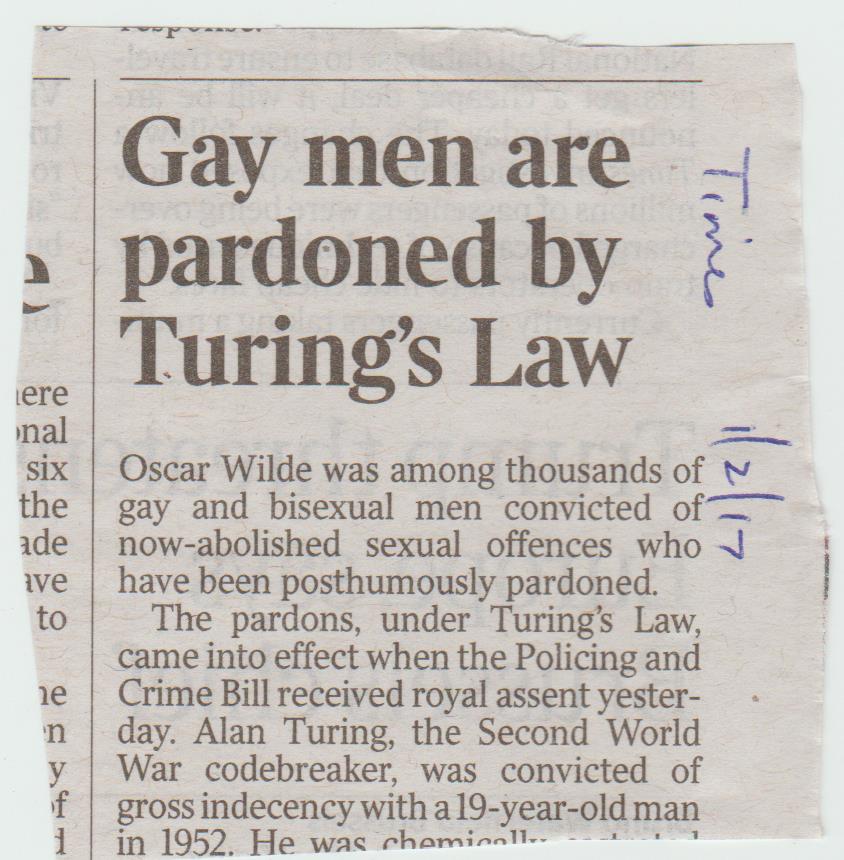
The Times, February 1, 2017
Just because someone is dead does not mean he or she has to be referred to in the past tense. You would not say, for example, ‘Shakespeare was considered to be the greatest British playwright’. This should read: ‘Oscar Wilde is among thousands of . . .’

Daily Telegraph, December 12, 2015
(85 words)
Without seeing the reporter’s copy it is impossible to know what, if anything, the sub has done with this story. However the result is an impenetrable jumble.
By referring back to the original press release on the internet, I can see that it, as well as the reporter and sub, has fallen into the trap of suggesting that birds are somehow in control of the colour of their feathers and can change them at will. In fact the scientists are simply saying that the colour we see in feathers is due to the structure of them, not an applied pigment of the type we use in dyes and paint.
This is how I would tackle this story:
Scientists have discovered why birds do not go grey as they age. The answer could prevent clothes fading with repeated washing.
Feathers are made of a spongy keratin material, similar to human hair. A team at Sheffield University found that the precise size and density of holes in the material determines the colour reflected from the surface. They believe this permanent ‘nanostructure’ could replace the use of pigments in dyes and paints, which eventually fade.
The findings are published in Nature Scientific Reports. (85 words)
The heading with its unnecessary split infinitive really is terrible. My effort would be:
How birds could help
with the weekly wash
It is worth saying that although there is an old subs’ adage that any story can be told in 25 words, it is not true, and a story of this complexity should not have been given such a short space. Tell it properly or don’t tell it at all.

Sunday Telegraph, January 3, 2016
This was the third incorrect attempt at ‘pastime’ that I had seen within a few months. It is not ‘passed-time’ or ‘pass time’ either. This clipping (which I didn’t cut out very well) also illustrates how the subbing rule that you do not repeat a word in a headline within the same page, let alone on the same story, has gone by the board. In the old days a repeated word was called a ‘rhubarb’. It was probably a rule made to be broken, but I do think the general principle of avoiding repetition if possible is a good one.